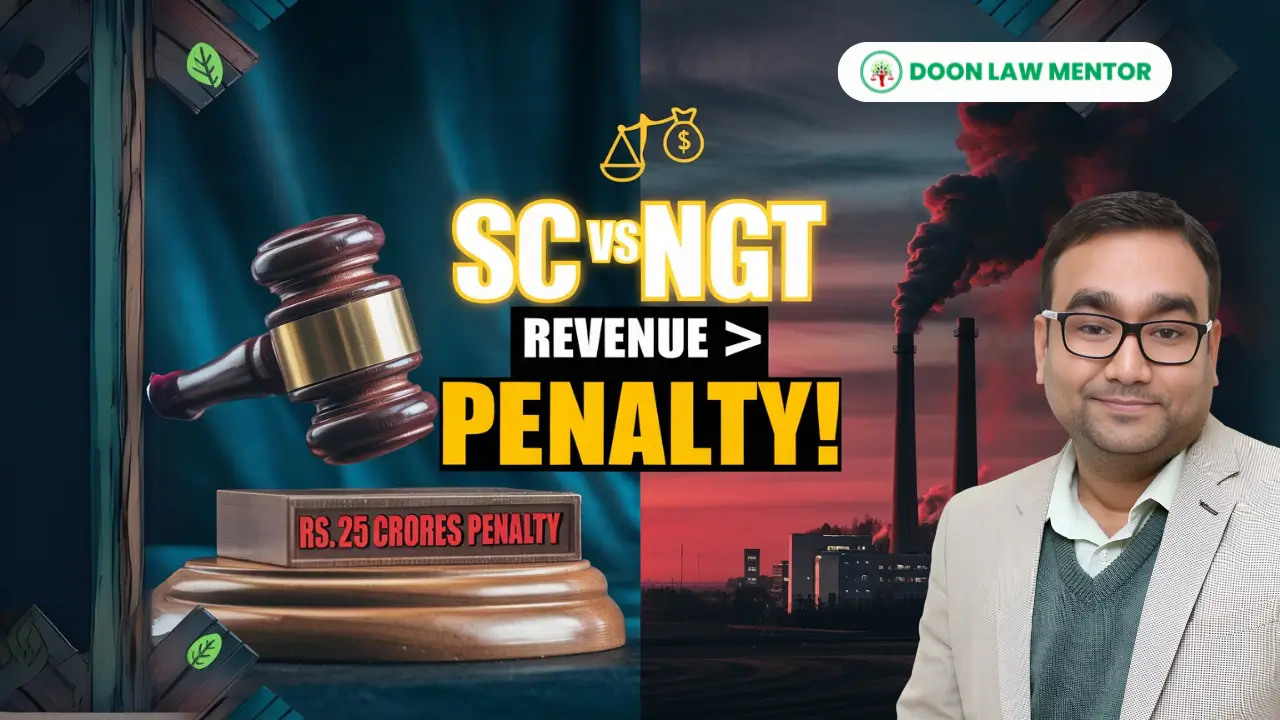Introduction
Mastering legal provisions is one of the most challenging yet essential parts of preparing for Judiciary Exams. Aspiring judges must not only know the Bare Acts but also be able to interpret and apply these laws using case law precedents and contextual knowledge. The ability to navigate between legal texts and judicial interpretations is key to excelling in both Prelims and Mains stages of the Judiciary Exam.
This detailed article will guide you through the best strategies for combining Bare Acts, case laws, and effective study techniques to master legal provisions for Judiciary Exams. Whether you’re studying for state-specific judiciary services or preparing for All India Judicial Service (AIJS), this approach will help you develop a deeper understanding of legal provisions and ace the exam.
1. Understanding Bare Acts: The Foundation of Legal Knowledge
A Bare Act is the statutory text of a law passed by the legislature, free from commentary, case law interpretations, or in-depth analysis. For judiciary aspirants, Bare Acts form the foundation of your legal knowledge, and knowing them inside out is crucial for both Prelims and Mains.
1.1 Importance of Bare Acts for Judiciary Exams
In the Prelims stage, which is typically objective in nature, questions often directly test your knowledge of the Bare Acts. You may be asked about the exact wording of sections, the definitions of legal terms, or specific provisions from major acts like the Bharatiya Nyaya Sanhita 2023, Bharatiya Nagrik Suraksha Sanhita 2023, Constitution of India, and Bharatiya Sakshya Adhiniyam 2023.
In the Mains, while you are expected to explain the application of the law, accurate knowledge of the Bare Acts is still essential. For example, questions might require you to explain provisions under Section 101 of BNS (murder) or Article 21 of the Constitution (Right to Life), and understanding the exact wording and scope of these provisions is indispensable.
1.2 How to Study Bare Acts Effectively
- Read the Bare Act Cover to Cover: Start by reading the Bare Acts thoroughly. Focus on the exact language used, as Judiciary Prelims questions often test this directly. For example, know the difference between “shall” and “may” in legal provisions, as this can alter the meaning of a section significantly.
- Focus on Definitions: Each Bare Act typically begins with a Definitions section that clarifies key legal terms. Make sure you memorize these definitions because Judiciary Exam questions often test how well you understand the precise meanings.
- Create a Section-Wise Summary: After reading, make section-wise notes summarizing important provisions. For example, for the Indian Contract Act, 1872, summarize each section related to contract formation, breach, and remedies. This helps in quicker revisions.
- Prioritize Major Acts: Judiciary Exams often focus on key legislations like the Indian Penal Code (IPC), Constitution of India, Evidence Act, and Criminal Procedure Code. Prioritize these acts but don’t neglect subject-specific laws like Family Law, Property Law, and Environmental Laws, depending on your state’s syllabus.
Tip: Refer to online Bare Act resources like IndiaCode for updated versions of laws that may have been amended recently. Staying updated with amendments is crucial as Judiciary Exams often test recent changes.
2. The Role of Case Laws: Interpreting and Applying Legal Provisions
While Bare Acts provide the text of the law, case laws are crucial for understanding how these legal provisions are interpreted and applied by courts. Judiciary Mains often require candidates to apply laws to hypothetical situations, and case law precedents are essential in crafting well-rounded, legally sound answers.
2.1 How Case Laws Complement Bare Acts
Case laws provide judicial interpretations and clarify ambiguities in the Bare Acts. For instance, Section 300 of IPC defines murder, but the landmark case of Bachan Singh v. State of Punjab (1980) clarified when the death penalty should be applied for murder, which is essential for Mains answers.
By studying case laws, you gain insights into how courts apply legal principles in real-life situations. This is crucial not only for writing answers in Mains but also for Judiciary Interviews, where panelists often ask about your understanding of landmark judgments.
2.2 How to Study Case Laws Effectively
- Identify Key Case Laws: Focus on landmark judgments and frequently cited cases that have shaped the interpretation of major legal provisions. For instance, the case of Keshavananda Bharati v. State of Kerala (1973) is pivotal for understanding the Basic Structure Doctrine in constitutional law.
- Read Judgments Systematically: When studying case laws, focus on understanding the facts of the case, the legal issues involved, the arguments from both sides, the court’s reasoning, and the final judgment. Summarize each judgment in a structured format so you can recall key points during the exam.
- Apply Case Laws in Answers: When writing answers in Judiciary Mains, quoting relevant case laws can significantly boost your score. For example, when discussing Article 21 (Right to Life), you can reference Maneka Gandhi v. Union of India (1978) to explain how the Supreme Court expanded the meaning of “life” and “liberty.”
- Prioritize Recent Judgments: Judiciary Exams often include questions on recent developments in law, so make sure you stay updated with Supreme Court and High Court judgments from the past two to three years. For example, cases like Shayara Bano v. Union of India (2017), which invalidated triple talaq, are highly relevant.
You can find landmark judgments on SCC Online for free access to case laws.
3. How to Bridge the Gap Between Bare Acts and Case Law
Mastering both Bare Acts and case law is not enough; you need to learn how to connect the two. Judiciary Exams often test your ability to interpret statutory provisions in light of judicial pronouncements.
3.1 Combining Bare Acts and Case Law for Prelims
In Prelims, objective questions may ask you to directly cite provisions from the Bare Act, but you may also face questions where you need to know how those provisions have been applied in practice. For example, you might be asked about the applicability of Section 149 of IPC (unlawful assembly) in light of specific Supreme Court judgments.
Tip: When revising Bare Acts, always make a note of 2-3 important cases related to each section. This will ensure that you can answer both direct and applied questions in Prelims.
3.2 Combining Bare Acts and Case Law for Mains
In Mains, the focus shifts to applying your knowledge of Bare Acts and case laws to hypothetical situations. Here, the ability to seamlessly weave statutory provisions with judicial interpretations is key to scoring high marks.
For example, if a Mains question asks about the right to freedom of speech under Article 19(1)(a), you can discuss the Bare Act provision (Article 19) and then reference Shreya Singhal v. Union of India (2015), where the Supreme Court struck down Section 66A of the IT Act for violating free speech rights.
3.3 Writing Well-Rounded Answers in Mains
The structure of a good Mains answer typically follows this pattern:
- Introduction: Start by quoting the relevant section from the Bare Act.
- Analysis: Discuss the judicial interpretation of the provision, citing relevant case laws.
- Application: Apply both the statutory provision and judicial interpretation to the question at hand, explaining how the law would operate in the given situation.
- Conclusion: Provide a concise conclusion, offering any critical views or future perspectives on the law, if necessary.
For example, a Mains question about marriage under Hindu law might require you to quote Section 5 of the Hindu Marriage Act, 1955 (conditions for marriage), and then apply the landmark case of Saroj Rani v. Sudarshan Kumar Chadha (1984) to explain the applicability of restitution of conjugal rights.
4. The Importance of Recent Amendments and Judicial Trends
The judiciary exam syllabus is dynamic, and recent legal amendments and judicial trends are often tested, especially in Prelims and Mains. Staying updated on these changes will ensure that you’re not caught off-guard by questions on new developments.
4.1 Key Recent Amendments to Focus On
- Criminal Law (Amendment) Act, 2018: This amendment introduced stricter punishment for sexual offenses, particularly rape. Judiciary Mains often ask questions on these amendments, and you need to know both the statutory changes and the judicial context.
- The Motor Vehicles (Amendment) Act, 2019: This act introduced significant changes in road safety laws and penalties. Judiciary aspirants should be aware of these provisions as they are relevant for both Prelims and Mains.
4.2 Understanding Judicial Trends
In addition to amendments, recent judicial trends are crucial for Judiciary Exams. Keep track of key judgments from the Supreme Court and High Courts that have altered legal interpretations. For instance, the decriminalization of Section 377 IPC (homosexuality) in Navtej Singh Johar v. Union of India (2018) was a watershed moment in constitutional law.
Tip: Make sure to include recent judgments in your answers, as Judiciary Mains questions often reward candidates who show awareness of current legal trends.
Stay updated with judicial trends on platforms like Bar and Bench.
5. Mock Tests, Practice, and Revision: The Key to Success
While mastering Bare Acts and case law is essential, practice is what will solidify your understanding. Mock tests, revision schedules, and regular practice with previous year papers are crucial for Judiciary Exam success.
5.1 Importance of Mock Tests
- Prelims Practice: Taking mock tests helps in practicing objective questions based on Bare Acts. You can simulate exam conditions and gauge how well you remember key provisions.
- Mains Practice: Writing mock answers for Mains helps improve your ability to structure answers that combine Bare Acts and case law. It also helps in developing time management skills.
5.2 Revising Key Legal Provisions
- Flashcards for Quick Revision: Create flashcards for important sections and judgments. This is especially useful for quick revision in the days leading up to the exam.
- Focus on Weak Areas: Use mock tests to identify weak areas in your understanding of legal provisions and spend extra time revising those topics.
Conclusion
Mastering legal provisions for Judiciary Exams requires a comprehensive approach that integrates Bare Acts, case laws, and effective study techniques. By developing a solid understanding of the statutory text and complementing it with judicial interpretations, you can excel in both Prelims and Mains. Regular practice, mock tests, and staying updated with recent amendments and judgments will ensure that you’re well-prepared to tackle any question that comes your way.
FAQs
1. What is the importance of Bare Acts in Judiciary Exams?
Bare Acts form the foundation of your legal knowledge, particularly for Judiciary Prelims, which tests direct provisions of the law.
2. How do case laws help in Judiciary Exam preparation?
Case laws provide judicial interpretations of legal provisions, helping aspirants understand how laws are applied in real-life situations, which is crucial for Judiciary Mains.
3. How should I study Bare Acts effectively?
Focus on reading the Bare Acts thoroughly, prioritize key legislations, make section-wise notes, and practice memorizing definitions and legal terms.
4. Why are mock tests important for Judiciary Exam success?
Mock tests help you practice objective questions, improve time management, and highlight weak areas that require further revision.
5. How do recent amendments and judicial trends impact Judiciary Exams?
Judiciary Exams often test recent legal amendments and trends, so staying updated with recent legal developments ensures better exam performance.
JudiciaryExam #LegalProvisions #BareActs #CaseLaw #JudiciaryPreparation #LawExamTips #DoonLawMentor #BestJudiciaryCoaching






11 Comments
Your comment is awaiting moderation.
I’m extremely impressed with your writing talents and
also with the structure in your weblog. Is that this a paid
subject or did you modify it your self? Anyway keep up the nice high quality writing,
it is rare to look a great weblog like this one nowadays. Affilionaire.org!
Can you be more specific about the content of your article? After reading it, I still have some doubts. Hope you can help me.
Thank you for your sharing. I am worried that I lack creative ideas. It is your article that makes me full of hope. Thank you. But, I have a question, can you help me?
Thank you for your sharing. I am worried that I lack creative ideas. It is your article that makes me full of hope. Thank you. But, I have a question, can you help me? https://www.binance.com/ph/register?ref=B4EPR6J0
Can you be more specific about the content of your article? After reading it, I still have some doubts. Hope you can help me.
Your article helped me a lot, is there any more related content? Thanks!
Your point of view caught my eye and was very interesting. Thanks. I have a question for you.
I don’t think the title of your article matches the content lol. Just kidding, mainly because I had some doubts after reading the article.
Thanks for sharing. I read many of your blog posts, cool, your blog is very good. https://accounts.binance.info/en/register-person?ref=JHQQKNKN
Thank you for your sharing. I am worried that I lack creative ideas. It is your article that makes me full of hope. Thank you. But, I have a question, can you help me?
Your point of view caught my eye and was very interesting. Thanks. I have a question for you.
Your point of view caught my eye and was very interesting. Thanks. I have a question for you.